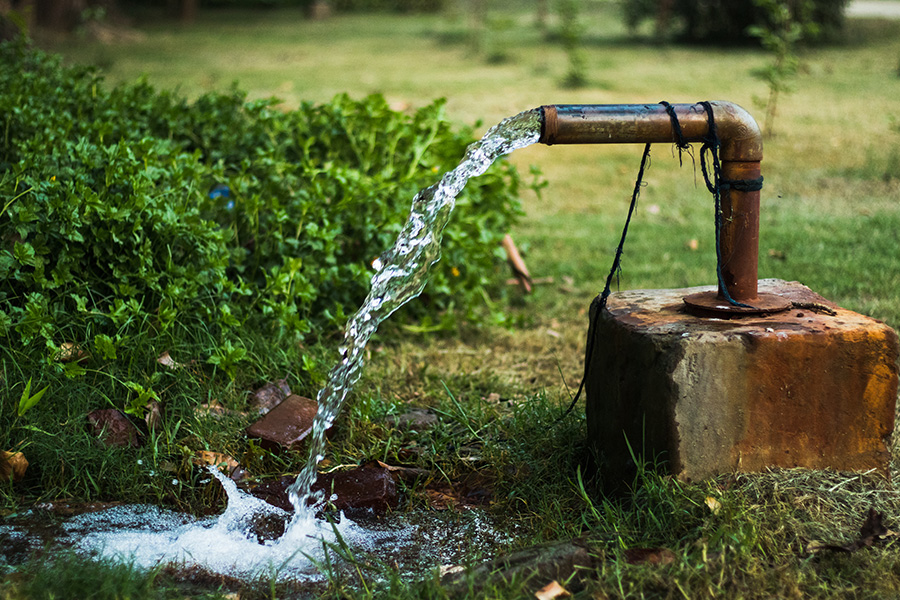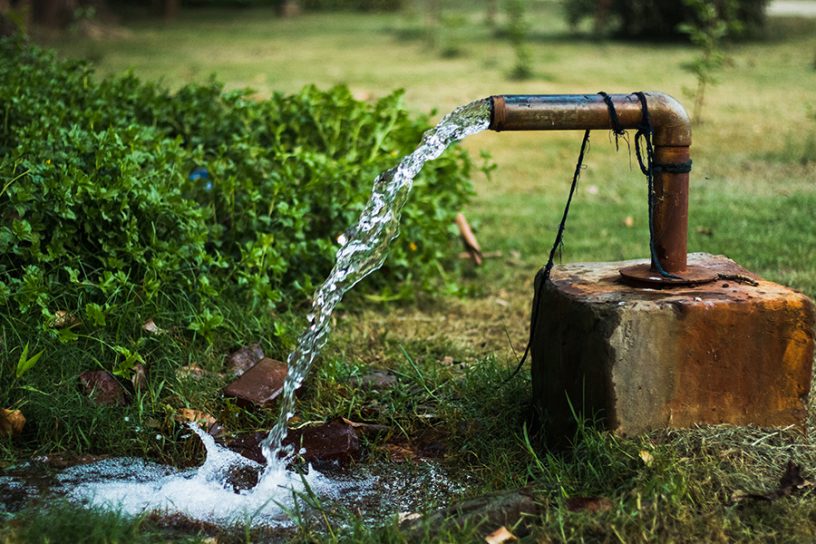
Over the years, groundwater has emerged as the mainstay of the irrigation sector in India (via millions of tube/bore wells), replacing surface-water systems (canals), finds the study.
Authors
Sriroop Chaudhuri, Co-Director, Center for Environment, Sustainability and Human Development (CESH), Jindal School of Liberal Arts and Humanities, O.P. Jindal Global University, Sonipat, Haryana, India.
Mimi Roy, Professor, Jindal School of Liberal Arts and Humanities, O.P. Jindal Global University, Sonipat, Haryana, India.
Dishant Parakh, Agriculture and Rural Management, Indian Statistical Institute (ISI), New Barganda, Giridih, Jharkhand, India.
Harnoor Kaur, Monitoring, Evaluation, Resolution and Learning (MERL); The Water Project; 17 Depot Street; Concord, USA; Water Science, Policy & Management, School of Geography and the Environment, University of Oxford, Oxford, UK.
Summary
Growing inequity in access to sustainable irrigation supply services, groundwater and electricity in particular, has become core agendas in many recent global development dialogues on account of food/nutritional security, ensuring on-farm livelihood opportunities, rural poverty alleviation and development.
Herein, we aim to present a nation-wide appraisal of eco-environmental and socioeconomic ramifications of subsidizing farm-power services in India, to highlight future requirements to conserve groundwater reserves so as to ensure sustainable irrigation supply services.
We adopted a mixed method approach, coupling secondary data analysis (obtained from various governmental archives), with a systematic review of relevant global literature. For the latter, we adopted a multi-stage PRISMA method (Preferred Reporting Items for Systematic Reviews and Meta-Analyses) to summarize observations from post-2000 literature.
Our results indicate that, over the years, groundwater has emerged as the mainstay of the irrigation sector in India (via millions of tube/bore wells), replacing surface-water systems (canals). However, unsustainable groundwater drafting has led to (i) significant groundwater drawdowns in most Indian states; (ii) exacerbated greenhouse gas emissions; and (iii) caused extensive soil-water salinization, which impede sustainable agrarian/rural development on long-run. Current literature, however, suggests that, unsustainable groundwater drafting is indulged at policy level only by (i) relaxed groundwater tariffing scheme, and (ii) lucrative agro-power subsidies – collectively which offer the farmers free reign to draft groundwater at will.
We reflect on the rise of groundwater market, leading to disproportionate access to groundwater for irrigation, and tragedy of the less-endowed sections of the farming communities. We urge the concerned authorities to devise and implement strategic institutional reforms to bolster the agro-power subsidy delivery mechanisms, and reflect on opportunities of nationwide adoption of feeder channel segregation (FCS) and initiate minimum energy support (MES) schemes.
The idea is to make the agro-energy sector more efficient (based on notions of equity, fairness and transparency for all to access the benefits. In the final section we urge the authorities to adopt a systems’ thinking approach to identify the key barriers to on-ground implementation of FCS and MES; introduce smart metering system, and above all, incorporate the water-food-energy nexus application in mainstream decision making for irrigation services.
The idea is to identify/develop means of resource co-management, identify synergies and trade-off, within a unified framework of irrigation systems’ governance that balances resources supply and demand, without endangering the ecosystem services.
We also outline potential research directions; emphasize on need of targeted, process-level investigations with increased case studies, and urge the authorities for improved data dissemination and accessibility.
Published in: Groundwater for Sustainable Development
To read the full article, please click here.


